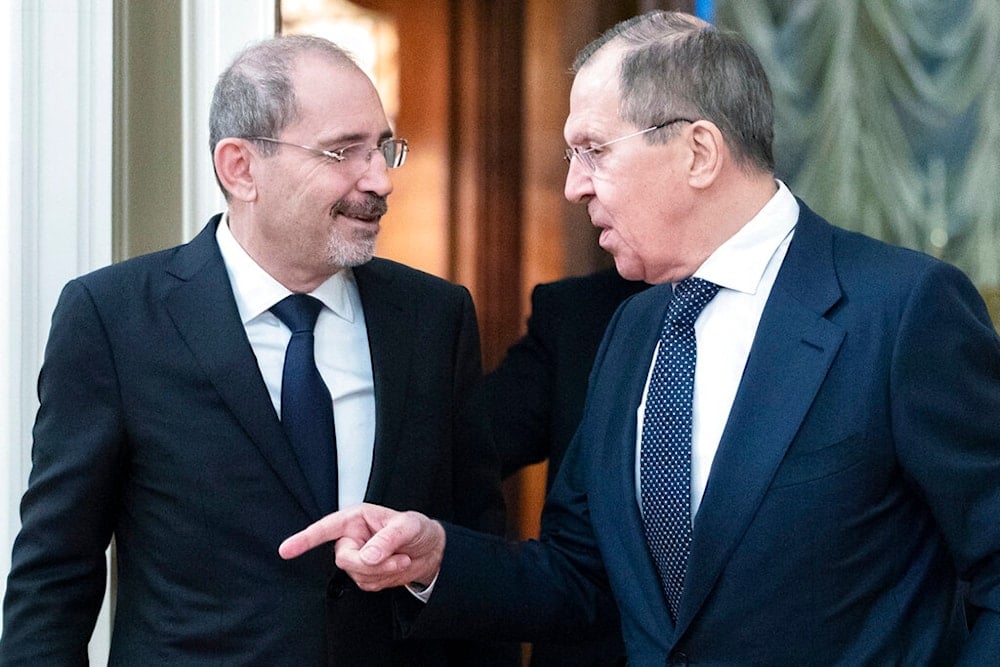Lavrov, Safadi stress respect for Syria's territorial unity
Russian Foreign Minister Sergey Lavrov and his Jordanian counterpart, Ayman Safadi, discussed the situation in Syria during a phone call.
-

Russian Foreign Minister Sergey Lavrov, right, and Jordanian counterpart Ayman Safadi enter the hall during their meeting in Moscow, Russia, on Wednesday, February 19, 2020. (AP)
Russian Foreign Minister Sergey Lavrov held a phone conversation with his Jordanian counterpart, Ayman Safadi, on Sunday to discuss the situation in Syria. Both sides emphasized the importance of the international community respecting Syria's territorial integrity and unity.
In a statement, the Russian Foreign Ministry highlighted the ministers' agreement on the need for full adherence to the principles outlined in UN Security Council Resolution 2254. These principles prioritize preserving Syria’s territorial integrity and unity, as well as facilitating an inclusive national dialogue involving all Syrian parties and external stakeholders with an interest in Syria who can contribute positively to achieving national reconciliation.
The statement also noted that Lavrov and Safadi agreed to continue enhancing cooperation on these matters and discussed plans for upcoming high-level Russian-Jordanian meetings.
Syria's new leadership asserts strategic alliance with Russia
The leader of Syria's new regime forces, Ahmed al-Sharaa underscored the country's strong strategic ties with Russia during an interview with Al Arabiya released on Sunday. While discussing Moscow's global standing, al-Sharaa stated, "Russia is the second most powerful state in the world. It is of great importance. Syria shares strategic interests with Russia."
Speaking to the Saudi state news channel, al-Sharaa, also known as Abu Mohammad al-Jolani, said that the new Syrian leadership does not wish for Russia's presence in Syria to end "in a manner that is inconsistent" with their longstanding bilateral relationship.
In comments to Sputnik on Sunday, Russian Foreign Minister Sergey Lavrov stated that Moscow had not been informed of any plans by Syria's interim government to revisit agreements related to Russia's military presence.
"Undoubtedly, the change of power that has taken place and the change in the state of affairs on the ground are making certain adjustments regarding the Russian military presence in Syria. It is not only about preserving our bases or strongholds, but also about the conditions of their operation, maintenance and provision, and interaction with the local side. These topics could be the subject of negotiations with the new Syrian leadership," Lavrov said.
Moreover, the situation in Syria does not impact the comprehensive agreement established between Russia and Iran, the foreign minister affirmed, adding that it was ready to be signed and officiated.
He described the agreement as comprehensive, long-term, and adaptable to all circumstances, requiring no amendments despite the change in Syrian leadership. Lavrov highlighted that the agreement reflects significant progress in bilateral relations and elevates them to the level of a strategic partnership.
Read more: Western strategist: Sykes-Picot was not enough division, more required

 3 Min Read
3 Min Read








